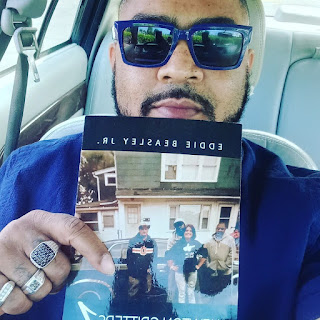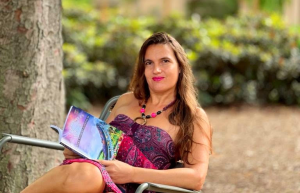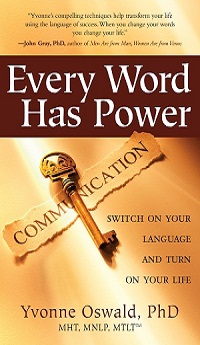(RECTOR, ST JOHN VIANNEY MINOR SEMINARY, BARKIN LADI)

Today, we will interview discuss with the author of The Persistence of Religious Violence in Northern Nigeria and the Search for Peaceful Co-Existence: A Theological Perspective.
Nigeria is a country with history of religious violence. This book talked about the causes and ways to solve this problem that has plagued the most populous country in Africa.
Below is our interview with the author:
Tention Free: It is nice to have this chat with you.
It is my pleasure
Tention Free: Please can you share with us details of your background and what inspired you to write the book?
My name is Rev. Fr. Gideon Pwakim, a priest of the Catholic Archdiocese of Jos, Plateau State, Nigeria. I am currently the Rector of St. John Vianney Minor Seminary, BarkinLadi, near Jos. This is a school specially established to prepare children of secondary school age for admission into the major seminary where they are to be trained for the catholic priesthood. So basically, my task here is to guide them in discovering their calling to become Catholic priests. And for those who want to opt out for other spheres of life, we prepare them adequately to find their footing in these other fields.
I have a bachelor’s degree in Philosophy (B.Phil.) from St. Thomas Aquinas Major Seminary, Makurdi, Benue State (affiliated to the Pontifical Urbaniana University, Rome) and a bachelor’s degree in sacred Theology from St. Augustine’s Major Seminary, Jos, Plateau State (also affiliated to the Urbaniana University in Rome). I also have a diploma in Accounting from the University of Jos, Plateau state. In pursuit of academic pursuit, I was at the Jesuit of Loyola run P.T.H Sankt Georgen, Frankfurt Germany for my post-graduate studies. I bagged a Licentiate (an equivalent of a master’s degree) in Missionswissenschaft (Missiology) and a doctorate in the same field.
In 2018 I won the DAAD Award for the most outstanding foreign student at our university and in 2019 particularly for my services as the president of the Post-Graduate students at the university. Furthermore, my doctoral dissertation won the 2019 edition of the biannual Bishop Erwin Krautler Award in the area of Contextual Theology, Interfaith Dialogue and liberation Theology.
I am a believer in humanity and its sublime dignity. I am also passionate about promoting interfaith dialogue or what is known as wider ecumenism as a recipe for peaceful coexistence especially in divided societies like ours. My philosophy of life is summed up in the following words, “Life is short. Focus on what really matters.”
Regarding what inspired me to write the book, I was actually inspired by the attitude and disposition of the former Archbishop of Jos and now of Abuja, the Most Rev. Dr. Ignatius AyauKaigama towards the promotion of interfaith dialogue and peaceful coexistence in Jos and Plateau State as a whole. I was inspired by his commitment to these ideals even when it was not popular to do so.His, is a moderate voice in a cacophony of extreme positions that only spell doom. So having seen him pursuing this from close quarters as his personal secretary, I felt the need to join forces with him and other like minds in the pursuit of this noble path. Besides, as someone from Jos, I have experienced firsthand some of the outbreaks of hostilities between the largely indigenous populations of the Jos Plateau and its largely Muslim settler communities. To say the least, these weren’t palatable experiences.
Tention Free: Your book is about religious violence in Northern Nigeria. What impact do you think it will have on the society today?
To start with, let me state with every sense of modesty, that there is no work that I have ever put in so much of my time and heart into it like this book. Researching into the problem that gave birth to this book was for me more than just an academic exercise. For me, it was a sacred quest for the restoration of a society that is on the verge of losing its soul. Anyone who has experienced the outbreak of hostilities between communities that have in the past lived in relative peace cannot but be inspired to search for peace. That haven’t been said, I am of the view that this book is loaded.
This book did not just emerge from the comfort of my study room but was borne out of a field experience. I did field work. I went round the nooks and crannies of Northern Nigerian communities that have been affected by religious violence conducting interviews. I was able to interview prominent personalities of northern Nigerian extraction (politicians, government officials, both religious and community leaders, security personnel, those in the academia, etc. What I was able to find out was both inspiring and frightening at the same time. It brought home the unpalatable truth that more needs to be done unite us more as a nation than is commonly understood. It re-enforced my belief in the necessity of interfaith dialogue.
So I am optimistic that those who genuinely care for the soul of the northern Nigerian society that has been so battered by series of ethno-religious violence and religious extremism will find in this book a valuable resource material. I am hopeful that readers will not only find this book an interesting read but above all will be inspired to choose the path of peace.
Tention Free: Are you full time into writing or business? Or do you have a day job or other businesses that you run?
Well, Like I earlier made mention at the beginning of this interview, I am presently the Rector of our diocesan minor seminary in Jos (St. John Vianney Minor Seminary, BarkinLadi), but I also find time to write. So despite the hectic nature of this apostolate of managing boys in their turbulent teenage years, I still find time to write. I have written a number of articles for a number of journals both nationally and internationally. This is my first publication though. I hope to write more by God’s grace.
Tention Free: And for those that haven’t read the book, do you think it is important for them to read it?
Like the common parlance, the taste of the pudding is in the eating. I will encourage everyone to try and read the book. I am hopeful that it will find a place in their hearts. Let me quickly add here that this particular book has already bagged an international award provides hope that it will impact many because of the hope that it raises.
Tention Free: What was the greatest challenge you faced while writing the book?
Every human endeavour has its challenges. Writing this book was not an exception. The greatest challenge among several others was conducting the fieldwork. Since the focus was on the persistence of religious violence in Northern Nigeria, I needed to go those areas affected by the violence in order to get first hand information. I needed to talk to those directly affected by the unending violence. In other words, I had to go to areas that were too dangerous to go. I was in Maiduguri and even at Chiboc. There were times; I was really scared but the desire to go to where it is happening kept me strong.
Tention Free: Your final words to our readers
The cause for peace must be pursued with every sense of honesty and sincerity. We must not only say it, we must truly mean it.
Tention Free: Thanks for your time.
It was my pleasure.





















